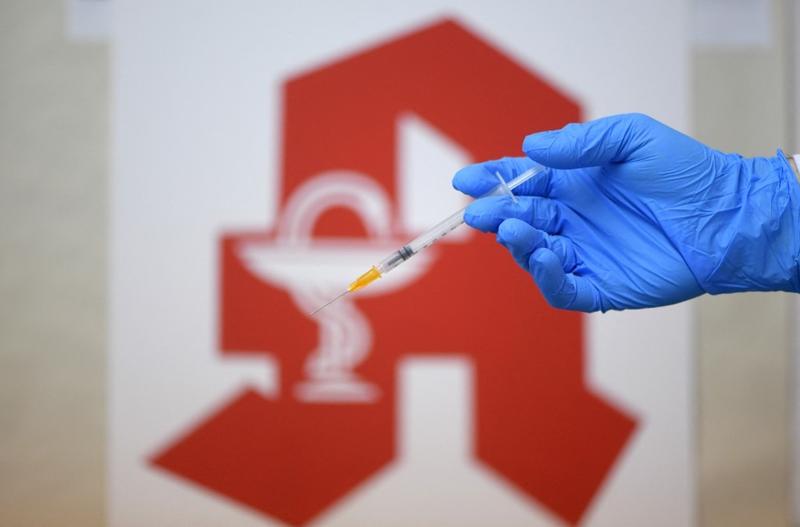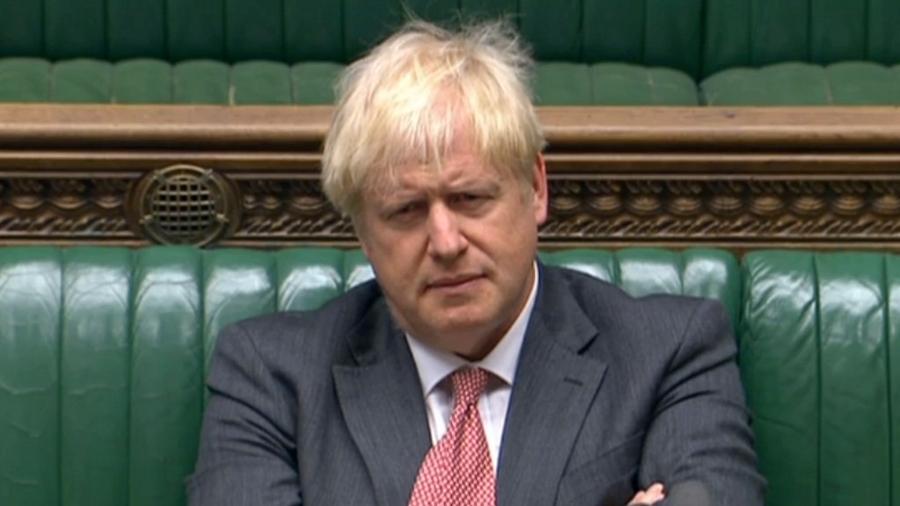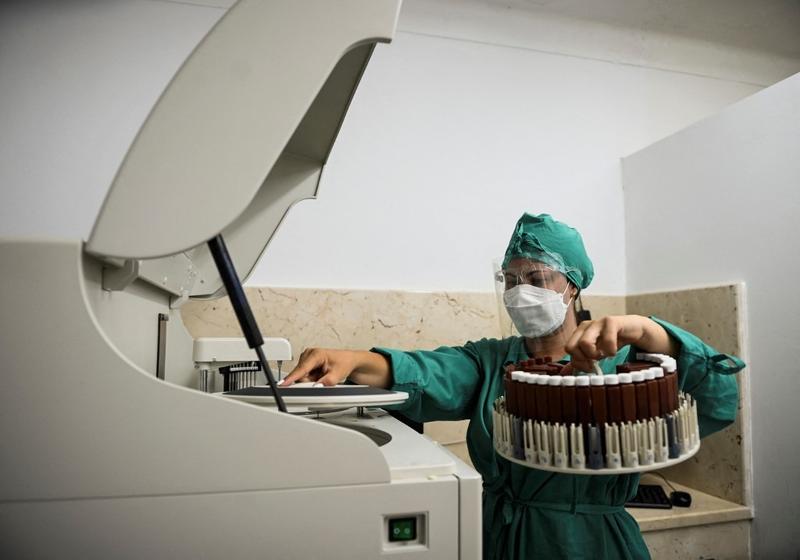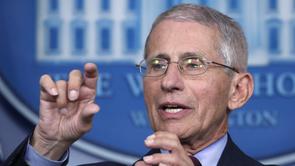 A pharmacist holds a syringe with BioNTech vaccine at a pharmacy in Duesseldorf, western Germany on Feb 7, 2022, amid a surge of infections during the ongoing COVID-19 pandemic.
A pharmacist holds a syringe with BioNTech vaccine at a pharmacy in Duesseldorf, western Germany on Feb 7, 2022, amid a surge of infections during the ongoing COVID-19 pandemic.
LONDON / MILAN / MOSCOW / HAVANA / SANTIAGO / SINGAPORE / BERLIN - German Chancellor Olaf Scholz on Wednesday, announced an easing of COVID-19 restrictions as a recent surge from the more infectious Omicron variant appeared to have passed its peak.
But he said a general vaccine mandate was still necessary to deal with possible new variants and a worsening situation in autumn and winter.
The debate in Germany highlights the difficulty in making vaccinations compulsory in the country's federal system and is likely to undermine efforts to extend the rule to all adults.
Germany has a lower vaccination rate than many other western European nations at about 75 percent fully vaccinated
Germany has a lower vaccination rate than many other western European nations at about 75 percent fully vaccinated. Around 92 percent of hospital workers have received two shots against the virus, a survey by the Robert Koch Institute showed.
Christine Vogler, head of the German Nursing Council, said the mandate would hit a sector already suffering staff shortages two years into the pandemic, with more than 200,000 nursing jobs currently unfilled.
"I have a choice between unvaccinated caregivers and no care at all. This is a bad solution," she said.
Vogel and other district councilors in the eastern state of Saxony, which has Germany's lowest vaccination rate and where almost 30 percent of healthcare staff are unvaccinated, have begged federal and state health authorities to scrap the mandate which passed parliament in December.
But after a meeting of state health ministers last week, it looks likely to go ahead. All 16 states agreed to implement the law as long as they are allowed to find ways to avoid staff shortages.
For instance, facilities could use former nursing staff or people with no nursing training to give support in non-medical areas, a spokesperson for the health ministry said.
However the looming mandate, stressful work conditions particularly during the pandemic, and low pay already appear to prompted some to leave the profession.
Almost 23,000 healthcare workers have registered as job seekers in the past two months, up 60 percent year-on-year, data from the federal Labor Office showed.
Some healthcare workers have sought to challenge the mandate but Germany's top court earlier this month rejected emergency petitions.
 A video grab from footage broadcast by the UK Parliament's Parliamentary Recording Unit (PRU) shows Britain's Prime Minister Boris Johnson listening as Britain's main opposition Labour Party Shadow Business, Energy and Industrial Strategy Secretary Ed Miliband (unseen) speaks in the debate into the Government's proposed Internal Markets Bill, in the House of Commons in London on Sept 14, 2020. (PHOTO / PRU / AFP)
A video grab from footage broadcast by the UK Parliament's Parliamentary Recording Unit (PRU) shows Britain's Prime Minister Boris Johnson listening as Britain's main opposition Labour Party Shadow Business, Energy and Industrial Strategy Secretary Ed Miliband (unseen) speaks in the debate into the Government's proposed Internal Markets Bill, in the House of Commons in London on Sept 14, 2020. (PHOTO / PRU / AFP)
Britain
Britain wants to retain the capability to spot new coronavirus variants but it must stop spending so heavily on free testing as cases and fatalities fall, Prime Minister Boris Johnson said on Sunday.
Johnson will set out plans this week for the country to "live with COVID-19" amid suggestions that free coronavirus testing could be stopped, and some health studies halted.
Asked by the BBC how the country would spot the arrival of new variants, Johnson said: "I want to make sure that we have capability to spot stuff and to snap back up as fast as we need to," he said.
"We need resilience ... but for instance, on testing. We don't need to keep spending at a rate of 2 billion pounds ($2.7 billion) a month, which is what we were doing in January."
 In this file photo taken on Sept 13, 2021, Canadian singer Justin Bieber arrives for the 2021 Met Gala at the Metropolitan Museum of Art in New York. (ANGELA WEISS / AFP)
In this file photo taken on Sept 13, 2021, Canadian singer Justin Bieber arrives for the 2021 Met Gala at the Metropolitan Museum of Art in New York. (ANGELA WEISS / AFP)
Canada
Justin Bieber has a mild case of COVID-19, CNN reported on Sunday citing a representative for the Canadian singer.
Bieber was scheduled to perform as part of his "Justice World Tour" in Las Vegas on Sunday, but the show has been postponed due to his positive COVID-19 test, the report said.
Chile
Chile registered 30,398 new cases and 151 more deaths from COVID-19 in the past 24 hours, the Chilean Ministry of Health reported Sunday.
These new figures bring the total caseload to 2,851,382 and the national death toll to 41,347.
The ministry said the national positivity rate in the past day has reached 26.29 percent.
The number of new COVID-19 cases has fallen 8 percent over the week, still 20 percent higher compared to figures 14 days ago, the ministry said.
Minister of Health Enrique Paris said that 12 regions of the country reported lower case numbers last week as the country continues to grapple with a wave of infections caused by the Omicron variant.
There are currently 129,581 active cases in the country, with 1,008 patients hospitalized in intensive care units and 829 on ventilators.
 In this file photo taken on Sept 3 , 2021, laboratory graduate Addaimis Medina works at the Varadero International Clinic, where the cases of tourists suspected of COVID-19 are classified, in Varadero, Cuba. (YAMIL LAGE / AFP)
In this file photo taken on Sept 3 , 2021, laboratory graduate Addaimis Medina works at the Varadero International Clinic, where the cases of tourists suspected of COVID-19 are classified, in Varadero, Cuba. (YAMIL LAGE / AFP)
Cuba
Cuba reported 628 new COVID-19 cases and one more death in the last 24 hours, bringing the total caseload to 1,065,385 and the national death toll to 8,487, the Ministry of Public Health reported Sunday.
There are currently 3,144 active cases, one of the lowest figures so far this year, it added.
The province of Ciego de Avila registered the highest number of cases in the last 24 hours with 94, followed by Matanzas with 85, and Las Tunas and Holguin, both with 68.
So far, 9.8 million of Cuba's 11.2 million residents have been fully vaccinated against COVID-19, while 5.8 million have received a booster dose.
The country's national vaccination program is being carried out with the Cuban-made Abdala, Soberana-02, and Soberana Plus vaccines.
 A woman wearing a face mask walks past a mural in Rome's Trastevere district on December 2, 2020 during the COVID-19 pandemic caused by the novel coronavirus. (TINIANA FABI / AFP)
A woman wearing a face mask walks past a mural in Rome's Trastevere district on December 2, 2020 during the COVID-19 pandemic caused by the novel coronavirus. (TINIANA FABI / AFP)
Italy
Italy's health ministry has recommended that people with a severely compromised immune system receive a fourth mRNA vaccine shot against COVID-19, provided that at least 120 days have passed from their previous booster, it said on Sunday.
The special commissioner appointed by the government for the COVID-19 emergency will set the date for the recommendation to come into force based on the needs of the vaccine campaign, the ministry said.
The ministry added that the decision reflects the still high circulation of the virus and the effectiveness that booster shots had shown in preventing COVID-related deaths and, more generally, symptoms that would require hospitalization.
Italy has registered 152,848 deaths linked to COVID-19 since its outbreak in February 2020, the second-highest toll in Europe behind Britain and the eighth highest in the world. The country has reported 12.4 million cases to date.
Russia
Russia has confirmed 170,699 new COVID-19 cases over the past 24 hours, taking the nationwide tally to 15,370,419, the official monitoring and response center said Sunday.
The nationwide death toll has increased by 745 to 345,500, while the number of recoveries increased by 147,296 to 12,365,238.
Meanwhile, Moscow reported 6,388 new cases, taking its total to 2,664,189.
Over 86.6 million Russian citizens had received at least one dose of vaccines and over 82.6 million had been fully vaccinated, according to data released on Friday.
The level of herd immunity in the country stood at 59.7 percent, the data showed.
Synairgen
Britain’s Synairgen said on Monday its inhalable therapy failed an international late-stage trial testing the drug in patients hospitalized with COVID-19, leading a blow to the development of the drugmaker’s key product.
“While we are disappointed by the overall outcome, SNG001 has been administered to hospitalized patients on top of standard of care which changed substantially between our Phase 2 and Phase 3 trials,” Chief Executive Officer Richard Marsden said referring to the treatment.
“This improvement in patient care may have compromised the potential of SNG001.
 In this March 31, 2020 photo, Dr Anthony Fauci, director of the National Institute of Allergy and Infectious Diseases, speaks about the coronavirus in the James Brady Press Briefing Room of the White House in Washington. (Alex Brandon / AP)
In this March 31, 2020 photo, Dr Anthony Fauci, director of the National Institute of Allergy and Infectious Diseases, speaks about the coronavirus in the James Brady Press Briefing Room of the White House in Washington. (Alex Brandon / AP)
US
Top US infectious disease expert Anthony Fauci said there is no perfect solution to the need of protecting US citizens from COVID-19 infection amid growing fatigue with the pandemic.
In a report carried recently by Singapore's Chinese-language newspaper Lianhe Zaobao, Fauci said that US states are facing tough choices in their efforts to balance the need to protect their citizens from contagion and the growing fatigue with the pandemic that has entered its third year.
"There is no perfect solution to this," said Fauci, a member of the White House COVID-19 Response Team, in an interview with Reuters.
The remarks were made against the backdrop that US health officials said they were preparing new COVID-19 guidance on many aspects of the virus response as the Omicron case surge declined.


